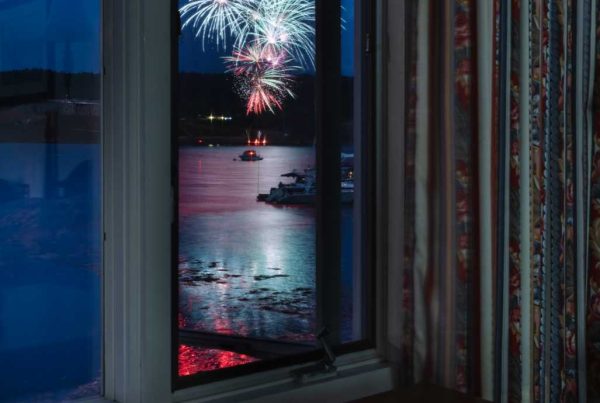What would compel a director like Derek Cianfrance, helmer of such raw, crackerjack indies as “Blue Valentine” and “The Place Beyond the Pines,” to write and direct a handsome prestige picture like “The Light Between Oceans?”

This question lingers unanswered over the first act of this adaptation of M.L. Steadman’s historical novel of the same name; it’s initially a tough sell for adventurous moviegoers. Routine montages, a forcibly sumptuous Alexandre Desplat score, and postcard-pretty images of sunrises, sunsets and starry nights merely skim stylistic waters, leaving depths of genuine feeling unexplored. It isn’t until a good 45 minutes into the feature that “The Light Between Oceans” wakes up to its potential and begins to approach the transcendent heights and bone-scraping emotional lows of Cianfrance’s previous work. Better yet, it’s more cerebrally ticklish than his earlier films, its story hinging on philosophical quagmires and haywire moral compasses.
Michael Fassbender plays Thomas Sherbourne, a laconic, self-reliant World War I veteran, who accepts a position as a lighthouse keeper on an island off the coast of Western Australia. He meets a sweet mainland girl named Isabel (Alicia Vikander) who helps puncture his self-imposed isolation. They marry, and she moves to the lighthouse with him, hoping to start a family. When these attempts end only in pain and premature burials, the couple appears at the end of its rope—until a miracle washes ashore one cloudy afternoon: a dinghy containing a dead man and a live baby that’s now ostensibly orphaned. Why report this, Isabel pleads, when we can just accept this gift from God and raise her as our own?

This is a writerly conceit if ever there was one, a contrivance almost preposterous enough to dismiss if it didn’t strengthen the film’s narrative fiber and deepen its humanism. The child’s discovery is just the start of the film’s twisty domino spiral of moral and ethical dilemmas, in which family happiness conflicts with duty, and the simple directive to “do the right thing” becomes a logistical maze with no clear answer.
Cianfrance’s deft hand with actors manifests in the calibrated underplaying of his leads, for whom quiet tears on un-made-up faces speak louder than dramatic howls of Oscar-baiting sorrow. Vikander again proves she’s incapable of an emotional misstep, transforming in front of our eyes from an optimistic girl to a broken woman. Fassbender is the picture of un-showy restraint; he’s a slender, soft-spoken worry line with a brow of many furrows, a tortured figure as gnawed from guilt as any Edgar Allan Poe protagonist.
There are scenes of disquieting sadness redeemed by mild uplift, but Cianfrance respects Steadman’s book enough not to lacquer on a happy ending. Sacrifice and empathy are the film’s thematic anchors, and neither can be achieved without some form of suffering. You can wish, as I did, that some of the director’s formal choices were handled differently—namely, to use the political parlance of the week, that he preferred visual hardening over softening—but this is a steadfastly provocative weepie, never losing its intellect even after the floodgates have been flung open.
****

There are no reservations, however, about “Mia Madre,” the sublime new film from Italian filmmaker Nanni Moretti, one of the most observant movies I’ve seen about the deleterious ways we deal with negative information.
Margherita Buy plays a testy, exacting director also named Margherita, Moretti’s first of many meditations on the merger between life and art. She’s in the process of shooting a film about factory layoffs and an organized labor strike by workers who won’t accept the loss of their livelihood. Off the set, Margherita is coping, poorly, with her own setback: Her hospitalized mother, Ada (Giulia Lazzarini), is dying of cancer, though neither Margherita nor her brother Giovanni (Moretti) have the gumption to admit this—to themselves or, more importantly, to their parent.
Avoidance and denial, disconnection and projection—these become Margherita’s emotional crutches as she navigates both her mother’s inexorable decline and her increasingly wayward movie, whose progress is derailed upon the arrival of a short-circuited, confabulating Hollywood actor (John Turturro, adding welcome comic relief) who, when not forgetting his lines, strips every room of its oxygen supply.

As this auteur’s creative and personal endeavors blur, so too do her dreams and waking life, her past and present. Moretti visualizes her mental detours without orienting us, leisurely drifting between psychic planes, beggaring comparisons to a laid-back “8 ½.” Even Margherita’s physical reality begins to resemble absurdist theater, from the eager door-to-door salesman whose appearance at her mother’s home prompts a belated breakdown to her own suddenly flooded home, the cause or resolution of which is never explained. It doesn’t need to be: The symbolism of powerlessness is clear, especially to a control freak unaccustomed to accepting it.
During a moment of clarity at an otherwise distracted press conference, Margherita tells a journalist that she strives to make movies that are “not just entertainment but which affect our reality.” Anyone who’s seen Moretti’s best work can attest to his ability to achieve this goal himself. “Mia Madre” is a kind of companion piece to 2001’s “The Son’s Room,” about a family’s coping with the death of its child. This time, his confrontation of mortality is more inevitable but no less psychologically attuned. Both are unsentimental portraits of wounded human behavior—the kind of mirrors to the soul that reflect our deepest selves, even when we don’t like what we see.
“Mia Madre” opens today at Living Room Theaters in Boca Raton, the Classic Gateway Theater in Fort Lauderdale and the Coral Gables Art Cinema. “The Light Between Oceans” opens at most area theaters.







